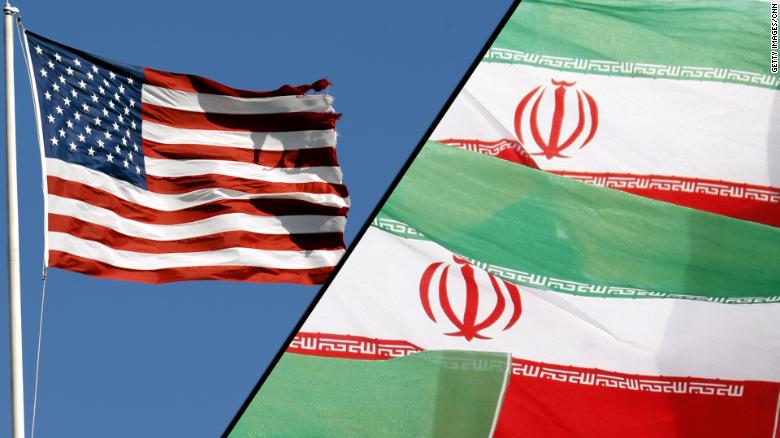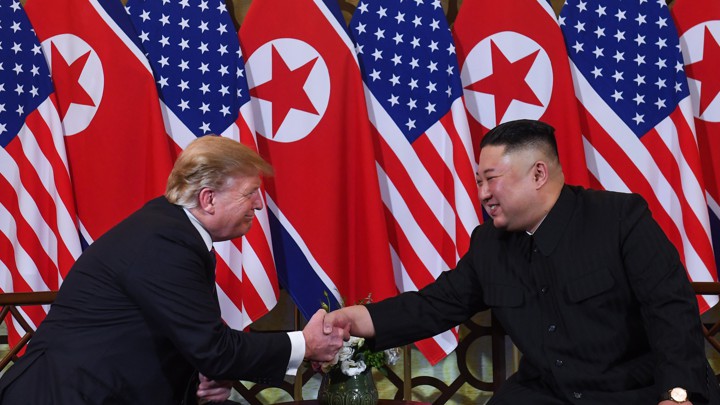Protesters participate in a mass rally against the Indian government's Citizenship Amendment Act in Kolkata on Dec. 16. DIBYANGSHU SARKAR/AFP VIA GETTY IMAGES
In 2019, Western news has focused on several themes, many of
which, not surprisingly, are connected to US President Donald Trump and his
policies, such as Trump's impeachment, US-China (trade and technology)
relations, the viability and future of NATO, the continued presence of
anti-democratic populist leaders, the spike in white nationalism and white
nationalist violence, Brexit, and so on. The intense focus on Trump has
squeezed out almost any room for several very important but overlooked events
and issues in 2019. Here, in this blog post, there's one specific case I'd like
to focus on, one that's in need of more attention by a wider audience. In
short, in my mind, the country to watch in 2019—and arguably, in 2020, as well—has
been India.
India has been roiled by turmoil and violence this past
year. In February, India engaged in a dangerous tit-for-tat military exchange with
nuclear-armed neighbor Pakistan over a terrorist bombing in India-administered
Kashmir. India went on the offensive and attacked a Jaish-e-Mohammed camp
in Pakistan, Pakistan responded with an air strike across the Line of Control,
and the subcontinent looked as if it was on the precipice of a catastrophic
war. Indeed, as Paul
Staniland points out, "With an Indian pilot in Pakistani hands, the
crisis looked as though it might escalate, and there are credible reports that
India threatened missile strikes against Pakistan, amidst efforts at crisis
management by third parties. Pakistan soon returned the captured
pilot to India and the crisis abated."
In August, under the guise of building a more cohesive Indian
state, the Bharatiya Janata Party (BJP), led by Home Minister Amit Shah, begun
deeply tightening its control over Jammu and Kashmir. The government removed
article 370 of the constitution, thereby stripping Jammu and Kashmir of
its special autonomous status, and relegated the region to the status of
"union territory." At the same time, the government cracked down on
political dissidents and opponents and enacted an Internet and phone blackout
in these two areas. It's a combustible situation that has yet to be fully
resolved, as political opponents and human rights activists attest.
More recently, on December 11, the BJP government passed "The
Citizenship Amendment Bill," which "would give many citizens of
Afghanistan, Pakistan and Bangladesh the opportunity to apply for Indian
citizenship based on their beliefs alone. But the Bill stipulates they must be
Hindu, Christian, Sikh, Jain, Parsi or Buddhist; Muslims are not listed."
This, in turn, has triggered waves of protests and demonstrations throughout
India, home to roughly two hundred million Muslims who are feeling targeted and
repressed by the BJP. But it’s not only Muslims who are on edge, it’s local student
and activists and advocates who fear that India is backsliding away from its longstanding
commitment to democracy and human rights and moving toward an ethno-religious authoritarian
state.
In the end, the bill has predictably turned up the political
heat in India, triggering violence, bloodshed, and a heavy-handed crackdown led
by the state. According
to the Washington Post, “In an effort to try to quell the protests, the
Indian government has detained thousands and turned off Internet access in
several cities. Those actions appear to have only further incited the
protesters and prompted more violence. Friday marked a particularly bloody day
for cities in the country’s most populous state, Uttar Pradesh, as 15 protesters
in several cities lost their lives, according to state police officials.
Internet in 15 cities remained suspended in the state Saturday. Despite these
curbs, the protests show no signs of abating, and at least four demonstrations
took place across Delhi, the capital region.”
What's going on here? What's explains India's behavior in
2019? The oft-told story about India nowadays is that the government is helmed
by ardent Hindu nationalists who seek to remake the state and society in line
with their ethno-politico preferences and interests. According to this
narrative, Prime Minister Narendra Modi and his BJP are a bunch of hardcore Hindu
nationalists, and once they captured power in 2014, they were then in a
position to act on their ethno-political dreams. And since coming into office, Modi,
through word and legislation and other forms of political action, has operationalized
Hindu nationalism as both a political means and a political end to be achieved.
Yes, it’s an end, because a Hindu state is the ultimate goal for the BJP.
But it’s also a useful means to various ends, because
pro-Hindu policies are popular among the BJP’s base of support and they strengthen
the party’s hold onto power, both of which fuel the government’s ability to get
its way on politics and policy. Modi himself has wielded Hindu nationalism as a
magic wand for his and his party’s advantage. Eurasia Group’s Ian Bremmer nicely
captures this point. Bremmer argues that electoral pressures—specifically, the
spring 2019 parliamentary elections—and a weakening economy directly led Modi
to double down on Hindu nationalism. He
writes: “India’s economy began to slow, a product of the external global
market environment, continued structural challenges on the domestic front and
short-sighted government policies. Modi opted to turn to Hindu nationalism to
bolster his poll numbers, a decision that helped him perform better than
expected in national elections in spring 2019. And after securing reelection,
Modi continued leaning his shoulder into Hindu nationalism, while neglecting
issues like land reform or reducing trade barriers.”
The other crucial element here—one that has received far
less attention—is that we’re witnessing some of the fits and spurts associated
with a power rising on the world stage. History tells us that it can be very
disruptive when rising powers, which are usually revisionist to some degree in
nature, seek a larger place in the world: the rising power, pushing outward and
placing stress on the extant regional and world orders, wants more influence
and power; status quo powers, meantime, are reluctant to grant such things,
fearing a diminution of their status regionally and globally. We’re now seeing
the early stages of this process playing out in India’s rise. India is clearly
a rising power and sees itself as such, wants to be recognized as a global
power, and it is becoming far less inclined to compromise on what it perceives
as its core national interests. Under Modi, India is no longer interested in
punching below its weight on global affairs; it seeks a place at the table of
great powers, whether they like it or not. Admittedly, while India’s foreign
policy isn’t nearly as expansionist or aggressive as China’s is these days, it’s
evident that Delhi is flaring its elbows a bit in search of influence and
prestige commensurate with its growing material power. This is causing India to
butt heads with Pakistan, of course, but also potentially with China, the US,
and Russia.
Finally, let’s touch on the implications of all of this. In particular,
what is the global impact of all of India’s moves in 2019? And what kind of
blowback might India face? There are lots of ways to answer this question. For the
sake of brevity, I’ll limit my remarks to three central points.
First, India’s overt Hindu nationalist play risks degrading the
nation’s soft power. According
to Michael Kugelman, a South Asia expert at the Woodrow Wilson center, “These
protests have hurt the government’s image....Global perceptions are
shifting-and that’s no small matter for a nation that has long enjoyed a relatively
positive image abroad and considerable soft power.” While this is probably true
for the short-run, especially as images of violence leak out to the world, it’s
less clear that it will hold over the long-term. Ultimately, the global fallout
of the domestic turmoil depends on how Modi and his BJP deal with India’s
festering social and political divisions. Do they attempt damage control,
reaching out and protecting the rights of distressed citizens and inhabitants
of India and resisting the siren song of Hindu tyranny—perhaps by limiting the
implementation of the proposed
National Registry? If they do, foreign countries that value human rights,
especially the Western powers consumed with China’s dominance, will be more
than happy to forgive and forget India’s rough and tumble 2019.
Second, 2019 has definitively raised the stakes in South
Asia. For roughly the past 20 years, Pakistan counted on a level of restraint
from India in response to regional events—terror attacks, Kashmir, missile
tests, etc.—which has allowed it to poke and prod and undermine Indian
interests. It would no longer be wise for Pakistan to assume India will exhibit
such restraint going forward, even in its relations with Pakistan. Moreover, it
should not assume that nuclear deterrence will necessarily, automatically hold
each side at bay. Highly nationalist India and Pakistan are demonstrating a
greater willingness to defend and protect their interests, take chances and
embrace reckless foreign policies, and accept costs along the way. This is an
alarming situation, particularly considering the subcontinent’s history of inter-state
rivalry and ethnic divides, stockpiles of nuclear arms, and presence of terror
groups.
Third, there is a chance that relations with the US could be
adversely impacted. Frankly, at this point, the Trump administration doesn’t
seek to pick a fight with India over its domestic policies—which makes sense,
given Trump’s policy of mostly staying out of the business of other countries’
internal politics. If Trump turns up the heat on India anytime soon, it will be
because of its trade
and broader economic policy. Moreover, Trump and his acolytes value India’s
role as a potential local counterbalancer to China’s movement and expansion in
South Asia and the Indian Ocean. After all, the reason the US government has
changed the name of its Asia policy from “Asia-Pacific” to “Indo-Pacific” is to
highlight India’s growing importance in US foreign policy.
The bigger problem for India are America’s democrats. Just last week, External Affairs Minister S.
Jaishankar canceled
a meeting a US Congressional Foreign Affairs Committee because of the
presence of Washington Democrat Pramila Jayapal, who, along with the
so-called Squad, has been openly critical of the Modi government, its human
rights policy, and its cozy relationship with Donald Trump. Indeed, “Jayapal
has introduced a bi-partisan resolution in the House calling for an end to the
restrictions in Jammu and Kashmir and for the Government of India to respect
international human rights law.” This, as should be expected, has triggered the
ire of the BJP.
In general, as long as the Trump White House continues to
downplay human rights and the state of global democracy in its foreign policymaking,
Congressional Democrats will harp on these issues, as they try to make the case
that they, not Trump or his Republican Party, are the only ones in the US
capable of formulating and implementing an ethical, moral policy platform. And if
a Democrat takes the White House in the November 2020 election, she or he will
face pressure from the liberal base to depart from Trump’s convention of
turning a blind eye to human rights abuses and democratic backsliding
worldwide. My guess is that a Democratic foreign policy will primarily critique
and pressure China, North Korea, and Russia, among other nations, though India
probably won’t get a free pass from America’s left. That, in turn, will create
friction in Delhi-Washington ties, thereby requiring deft diplomacy to ensure
relations don’t suffer a severe setback from the previous decade of bilateral
progress and momentum.










